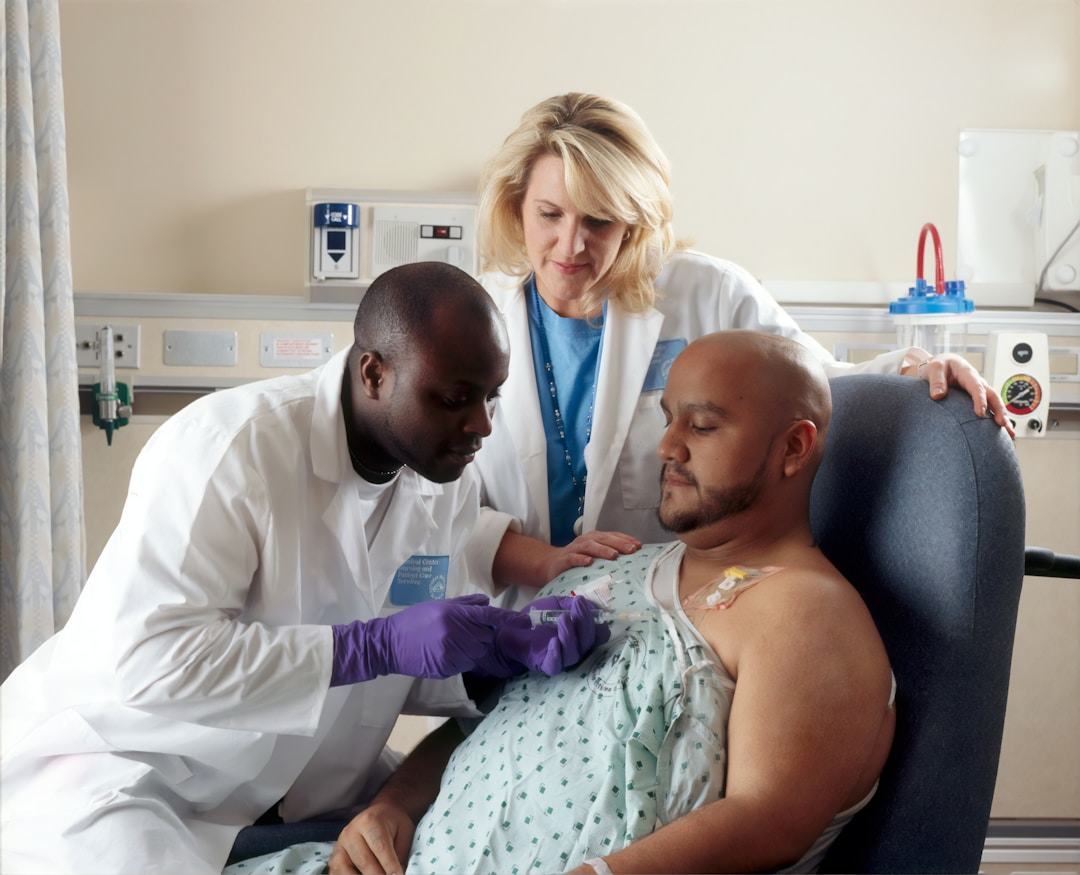Battling cancer is a stressor on the body and the mind, for the patient and everyone in their inner circle. It can be made even more stressful by other facets of our lives, like education. Whether you’re in high school or getting ready to begin your college journey, this time can be overshadowed by your cancer diagnosis and subsequent treatment. Here are some things to keep in mind as you pursue your degree while dealing with your personal health struggles.
Inform the relevant school staff

It’s important to keep people in the know about your illness. Inform professors, deans, guidance counselors, and other people associated with your studies that you have been diagnosed with cancer. It will not only provide you with some peace of mind but will also be appreciated by staff who will show compassion for what you’re going through. If you have chemotherapy sessions or are undergoing infusion therapy, you should give your professors an idea of the treatment plan. This will allow you to work with them on deadlines for papers or scheduling for exams to make sure that your illness is not limiting your capabilities in the classroom.
Talk to your classmates

As important as it is to keep your professors informed every step of the way, it’s just as important to let your fellow students know. It may be tough for a high school student entering the college realm, but the truth is being open about your cancer can help you. Your classmates may be willing to help you in terms of obtaining notes from lectures or lessons you’ve missed because of treatment or side effects from that care plan. Knowledge of your medical condition will allow for some compassion that may even be available outside of the classroom. Your peers may be willing to help you review your treatment options, take you to doctor’s appointments, or even just offer a shoulder to cry on when you’re feeling the most stressed during your cancer battle.
Put your health first

A cancer diagnosis can put you in a difficult situation, but it’s important to stay on top of your overall health. Chemotherapy can leave you drained, while also impacting hair loss and skin tone. Certain oral medication can help to address inflammation or other side effects brought on by your cancer treatment, but there are also natural solutions to address issues that are impacting you. You may notice that salt intake and dehydration have rendered you larger, so you may want to look into how to reduce puffy eyes or swelling in the eye area.
Some solutions for swelling and puffy eyes include using a cool compress (kept in the freezer) along with green tea treatment to better tighten the skin. It’s a good idea to work with family members and friends to maintain a proper health regimen. Be sure to consult with your primary care provider, oncologist, and other specialists to lay off your medication and treatment schedule. This can also help you figure out the lifestyle changes you may have to make to ensure that you’re back up and running to your normal self sooner rather than later.
Stay involved in college life

While it may be difficult, it’s important to keep yourself involved in what college has to offer. Be sure to stay on top of your classwork, keeping in communication with classmates and professors, but also be sure to keep yourself open to social situations. Taking part in extracurricular activities is a great way to relieve yourself from the stressors brought on by your cancer treatment or side effects. A classmate can become like a family member as you spend more time together, sharing common interests outside of the setting of studying. You could even look into an extracurricular activity that’s a bit more physical in nature. This will help with rebuilding your overall health after the damage that can be done by chemotherapy or radiation.
Look into accessible benefits

As you begin this journey, be sure to consult with a college admission guidance counselor. This will give you a better understanding of the cost of your pursuing an undergrad or master’s degree. You can also let a counselor know of your concerns going into your studies while battling cancer. Consultants can, in turn, point you to assets offered by the admissions office, as well as school-wide offerings, that can help you each step of the way. This includes potential help with financial aid, as well as available scholarships for current hardships that you could be dealing with physically and financially.
It’s actually beneficial to you as a college applicant, as it could even attract you to a school that you may have had qualms about attending in the first place. The important thing to remember as you go through a cancer battle is that you don’t have to go it alone. Be open about the emotions you’re dealing with, not just with your healthcare provider but with peers who may be willing to offer you a helping hand.



